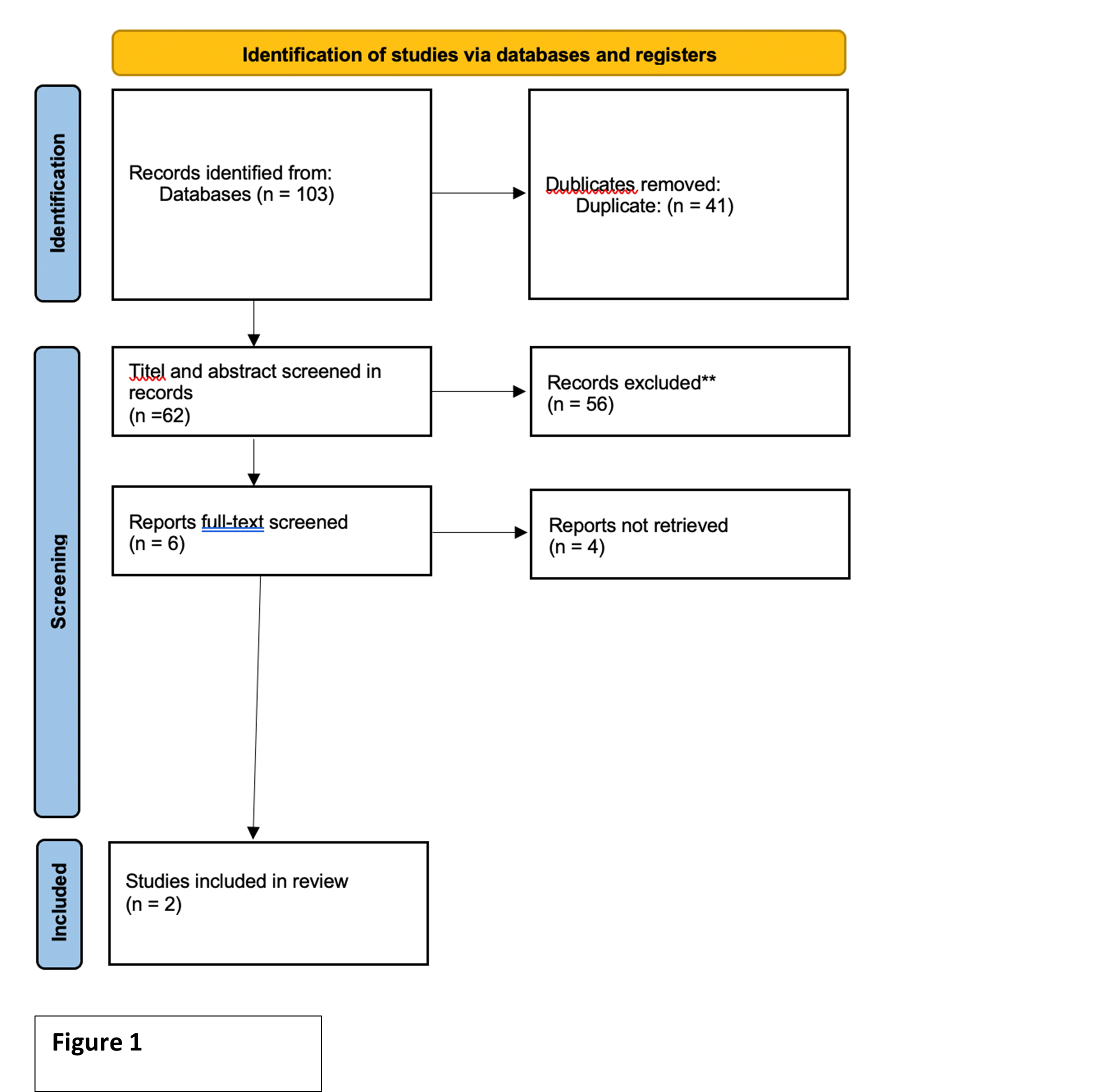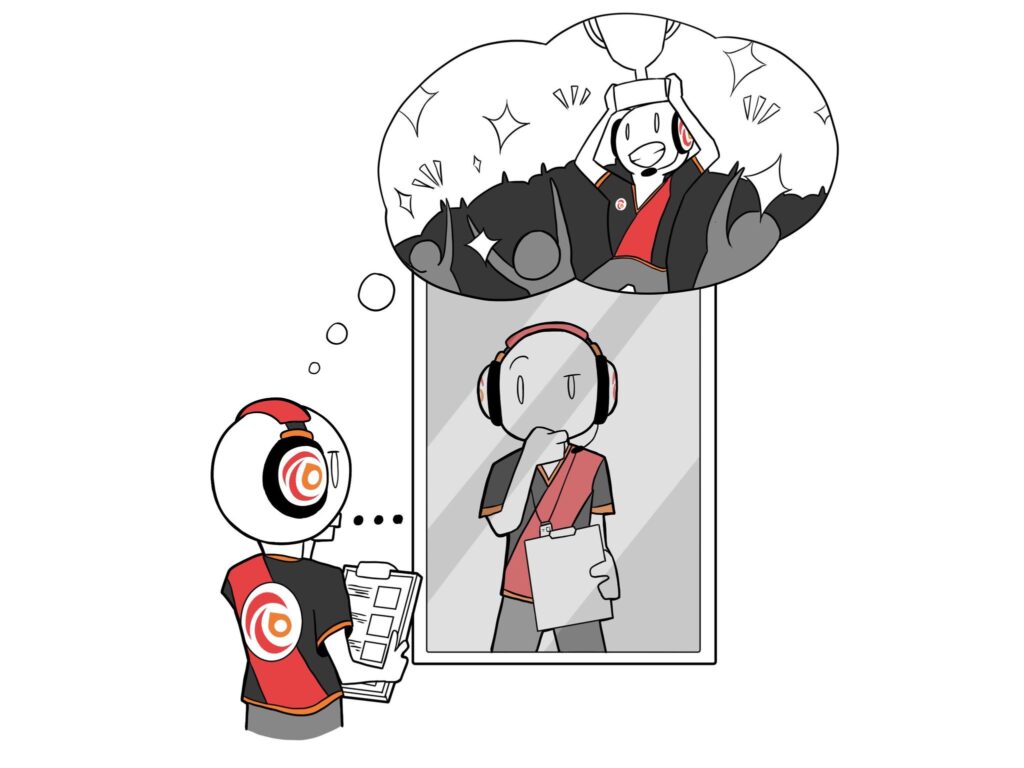Mindsets role and importance in esport
Over the last 10 years, the video gaming industry has seen a dramatic acceleration in growth. Globally more and more people are watching esports. At the same time more people also start playing these esport games. This has led to professional teams competing at a high level, forming professional contracts and going for seven-figure prize funds. Many young video gamers are getting attracted to the prospect of earning millions of dollars and competing at a high level. This leads to performing consistently and training many hours a day. But how do these players keep performing at a high level, which is importing when competing in esports? What kind of mindset or mentality do players develop, while playing esport games? This article tries to answer these questions by investigating research in this area. What do we know about mindset in an esport context? And how much research has been done regarding mentality development in esport?
Methods
The following section describes the methods used in this review. Firstly, the table (table 1) below illustrates inclusion- and exclusion criteria used in the search progress.
| Table 1 | |
| Inclusion criteria | Exclusion criteria |
| Mindset in an esport context | Language not written in danish or english |
| Mentality in an esport context | Addictive gaming |
| Gaming or Esport | Design focusing on disorders |
| Texts/reviews that are fully accessible | Serious games |
In this review, we were looking for mindset or mentality in esport or gaming. Therefore, articles focusing on mindset or mentality, in an esport context, was included. Also, that’s why gaming or esport was on the list. Texts or reviews, that are fully accessible, also made the inclusion criteria list. If the texts were not fully accessible, we would not be able to read the studies and results.
Regarding the exclusion criteria, it was very important that studies focusing on addictive behavior or disorders was not included. In this review, the goal was to examine what we know about mindset or mentality in esport. What kind of mindset/mentality does players in esport have? The study was not looking for a particular group of people, hence the exclusion of studies focusing on people being addictive to gaming or people with disorders. Also, serious games met the exclusion criteria, mainly because serious games are made to be educational in their designs and thereby could skew the results. This study focuses on entertainment games and how players develop mindsets or mentality when playing these games. If the study included games created by the author or serious games, it wouldn’t be generalizable compared to the area that we wish to examine.
Search synthesis
For the final search synthesis, the databases PsychInfo, Scopus and Google Scholar,
were used. These databases were used, mainly because they would cover a broad range of articles
with both psychological and gaming/esport themes, which is relevant for this review. Below is a table (table 2) illustrating the search matrix. This search was done with all 3 databases. All 3 databases have a Boolean search function, where all words from the search matrix can be combined with “AND”, “OR”, or “NOT”. The final search was conducted on September 20. – 2021.
| Arena/Place | Group Exercise/Method/Term | Design | ||
| E-sport OR E-sports OR esport OR esports OR “Computer games” OR “Digital gaming” | AND | Mindset OR Mentality | AND | Longitudinal study OR
Prospective study OR Follow-up study OR Timeseries study OR Register study OR Cohort study OR Systematic review OR Experiment OR Intervention OR Assessment |
| Table 2 | ||||
Selection process
After the search was conducted, the website www.covidence.org, was used for selecting articles. Covidence is a website that stores and organizes selected articles. At the same time, the program helps to organize the screening process. Cochrane recommends that two researchers independently screen the articles, which this review followed (Higgins, 2019). Titles and abstracts were screened independently. The studies were rated YES / NO / MAYBE. Disagreements over the inclusion of articles were discussed subsequently. The included articles were then read in full text and assessed according to the set inclusion and exclusion criteria for whether they should be included in the analysis. See Figure 1 for PRISMA Flow Diagram.

Results
Below follows a brief overview of the results found in this review. These results are based on the included reviews (n=2). See figure 2 for a more deeply description of every single article.
Two studies were used in this review (n=2). The results from these studies suggest that there are multiple mentalities developed in players playing games. Kallio and colleagues (2011) found nine different mentalities when playing videogames. They categorized them into 3 main mentalities. Social mentalities, casual mentalities and committed mentalities. Social mentalities refer to the players having a social orientation. They play the games because of the social benefits. That includes playing with friends or teammates, doing teamwork and being part of a team. This mentality is especially important in esport, as professional esport players often need to play as a team and work together. Casual mentalities refer to the players playing casually. Kallio and colleagues (2011) describes the term “casual gaming” as hard to distinguish between games. What needs to be considered from this mentality, is the interest in the game. Playing casually typically means playing for fun. And that creates motivation for playing the game. Committed mentalities refer to the players being committed to the game. This mentality also creates motivation. But at the same time, committed mentality can be understood as the opposite of casual mentality. Committed also includes playing to improve, playing to win and playing to become the best.
Smith and colleagues (2019) find different stressors associated with esport-players. They also asked esport players, which kind of coping-strategies they use, to develop a mindset capable of tackling these stressors. The stressors are identified as communication issues (both in-game and out-game). Lack of confidence, criticism from leader and lack of shared team-goals were also identified as stressors. Smith and colleagues (2019) found that coping strategies used among esport players, where emotion-focused coping, problem-focused coping, avoidance coping, approach coping and appraisal-focused coping.
| Figure 2 | ||||
| Article | Participants/Papers | Methodology | Results/Effects | Conclusion |
| At Least Nine Ways to Play: Approaching Gamer Mentalities – Kallio, Kirsi Pauliina; Mayra, Frans; Kaipainen, Kirsikka 2011 | 73 informants, consisting of both committed and casual gamers. | Mixed methods (qualitative and quantitative methods)
– Short structured interviews – Player observation – Survey with fixed open-ended questions – In deep interviews |
Results show nine major mentalities as important and common among Finnish digital gamers. These nine are categorized into 3 topics of mentality:
-Social Mentalities – Casual Mentalities -Committed Mentalities |
In contrast to common belief, the majority of digital gaming takes place between ‘‘casual relaxing’’ and ‘‘committed entertaining.’’ These mentalities and practices of play do not fit the stereotype of a gamer who is either addicted to a game (a central concern especially in the case of gambling or money gaming) or totally immersed in it (the gaming mentality most often evoked in the context of fantasy-driven games). |
| Identifying stressors and coping strategies of elite esports competitors – Smith, M.J.; Birch, P.D.J.; Bright, D. 2019 | 7 male esport players. Participants had between two and six years of experience playing competitive sports. | Qualitative methods
– Interviews |
Results show the stressors and copings strategies associated with CS:GO esport players.
Stressors include communication issues, lack of confidence, outcomes of losing, criticism from game-leader, lack of shared team goals, life balance etc. Coping strategies included emotion-focused coping, problem-focused coping, avoidance coping, approach coping and appraisal-focused coping |
The findings from this study provide preliminary evidence that the identified stressors pose significant challenges to the esports athletes in this study. The evidence indicates that despite the players in this study using a range of coping strategies, there is an overuse of avoidance strategies during competitive play, and a lack of effective problem- and emotions-focused strategies used during gameplay. Given that research has provided support for the efficacy of psychological skills training in maintaining focus during sports performance, it is intuitive to argue that esports athletes could benefit from psychological skills training, to arm them with strategies (e.g., positive self-talk, breathing techniques, imagery to improve focus) to use during competitions to regulate emotions. |
Discussion
Looking at the results above, it can be suggested that mindset and mentality among esport players can differ widely. Kallio and colleague (2011) explain three categories of mentalities. Social, casual and committed. All three mentalities can be developed depending on, which type of player you are. And all three mentalities can contribute when playing professional esport games. Also, Smith and colleagues (2019) find that esport players cope differently regarding stressors in esport. Some esport players cope emotionally. That means focusing on your emotions when playing the game. If the emotions cause distress for the player, they try to shut them down. Another coping strategy is the avoidance coping. Players using this strategy, avoids things or situations that causes distress. For example, some players avoid doing interviews, which made them uncomfortable, not shaking hands with opponents who had wound them up, and ultimately, leaving a team that they did not enjoy working with.
These results may argue that several mindsets exist in the esport world. And the mindset depends on the player. On the other hand, few things still need to be considered regarding these results. These results are only supported by two articles. These two articles were the only studies making it through the screening process regarding mindsets in esport. One may argue that two studies is significantly little and not very concluding. Therefore, this review suggest that more research need to be done regarding this area.
Also, this review used 3 databases, PsychInfo, Scopus and Google Scholar. 2 articles making it through the screening process is not much, considering the three databases being used. On the other hand, it can be argued that using more databases would increase the chances of getting more articles for this review. Still, even though the studies in this review show promising results, it is difficult to conclude anything. Therefore, this area call for more research in the future.
Conclusion
The results in this study show promising results regarding mindset in esport players. The results suggest, that mindsets or mentalities can differ widely among players. The mentalities depend on the type of player and that leads to different ways of coping with stressors in esport. Still, only two studies were included in this study, focusing on mindset or mentality in esport. This review concludes that more research needs to be done in this area in order to increase the significance of the results.
Litterature
Higgins, J. P. T., & Cochrane Collaboration issuing body. (2019). Cochrane handbook for system- atic reviews of interventions (Second;2; ed.). Hoboken, NJ: Wiley-Blackwell
Kallio, K. P., Mäyrä, F., & Kaipainen, K. (2011). At least nine ways to play: Approaching gamer mentalities. Games and Culture, 6(4), 327-353. https://doi.org/10.1177/1555412010391089
Smith, Matthew & Birch, Phil & Bright, Dave. (2019). Identifying Stressors and Coping Strategies of Elite Esports Competitors. International Journal of Gaming and Computer-Mediated Simulations. 11. 22-39. 10.4018/IJGCMS.2019040102.

